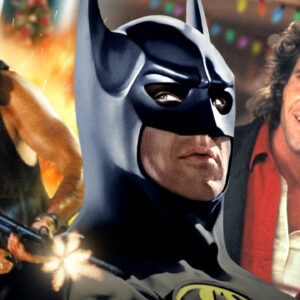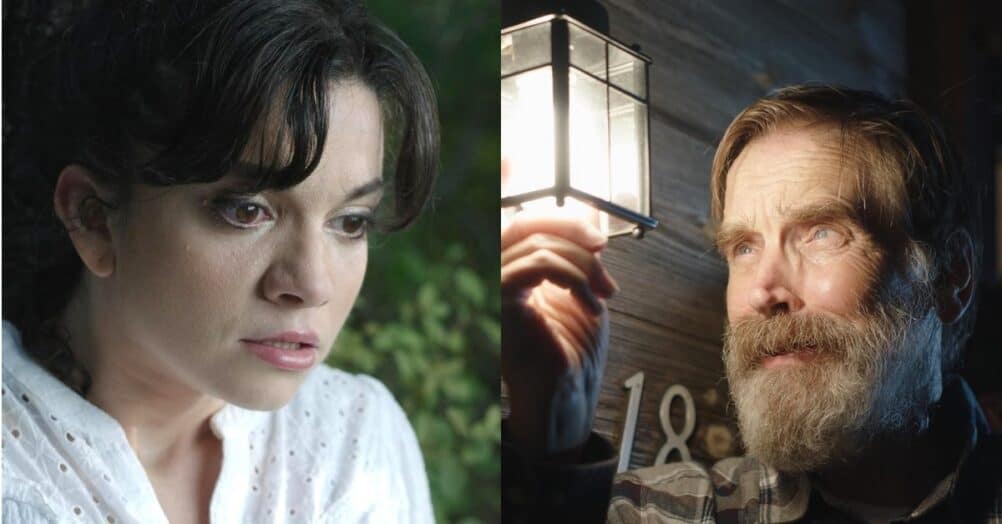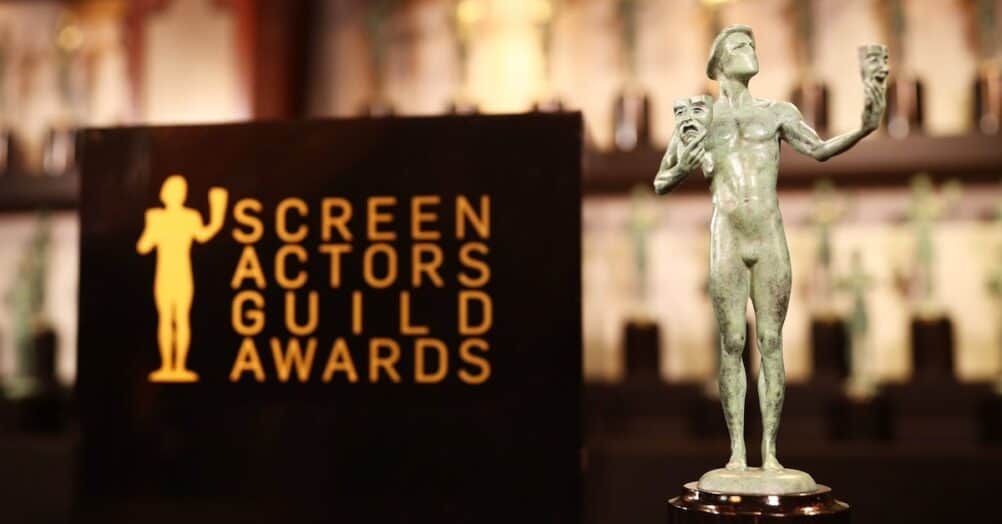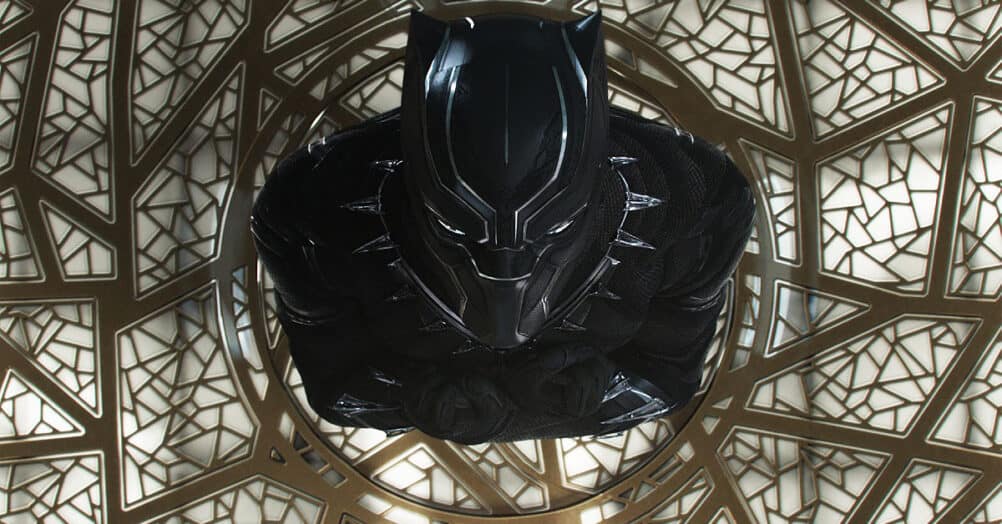Last Updated on May 30, 2024
INTRO: There’s a formula for buddy action movies. Take two characters with conflicting personalities and force them to work together, solving crimes and bringing villains to justice. Drop them into intense situations and watch them go from butting heads to respecting and caring about each other. It’s cliché, but sometimes it really works. This formula was perfected in the 1987 film Lethal Weapon, which took family man Roger Murtaugh and paired him with the irreverent, suicidal Martin Riggs. Then sent them after heroin smugglers with military training. That set-up was executed so well, it spawned a franchise. What went into making this action classic? Let’s find out in this episode of Revisited.
SET-UP: Today, Shane Black is known as one of the most highly respected and highly paid writers in Hollywood. But when he started writing Lethal Weapon, he had just graduated college. Twenty-three years old and writing his first solo screenplay. As he wrote the initial draft, he was drawing inspiration from the Western genre, the pulp fiction detective stories he loved, and one of his favorite movies, Dirty Harry. He even included a version of a scene from Dirty Harry where one of our police officer heroes attempts to talk down a man threatening to jump off a building. And if you’re a movie fan who would pay tribute to one of your favorites like that, you should subscribe to the JoBlo Originals YouTube channel to get fresh movie-related content throughout the week.
At the heart of Black’s story are two Vietnam veteran LAPD Sergeants. There’s Roger Murtaugh, a family man who has just celebrated his fiftieth birthday. As we see Murtaugh interact with his wife and three kids, it’s clear their household is a fun place that’s full of love. That’s a stark contrast to the lonely life of Murtaugh’s new partner Martin Riggs. Riggs’ wife was recently killed in a car accident, and grief has dropped him into a depression so deep the police psychologist suspects he may have had a psychotic break. On the other hand, his Captain thinks he’s just acting out so he can receive a psych pension. Which he doesn’t intend to give him. Riggs definitely acts like he’s out of his mind, wading into dangerous situations with total disregard for his own well-being. When he’s off duty he drinks too much and contemplates suicide. Murtaugh doesn’t think much of his new partner at first, complaining that “I’m too old for this shit” while believing that Riggs is going to get him killed. But they gradually bond and come around to liking, respecting, and caring for each other. Murtaugh even invites Riggs over to his house for dinner with the family.
Riggs has a dark past of carrying out assassinations during the war, and when writing this character Black envisioned him as an old gunslinger type. Or even an action take on Frankenstein’s Monster. Someone who is hated and reviled for what they’ve done and what they’re capable of. But when things go wrong and violent villains have to be dealt with, society needs to rely on this person to kill for them. As you can tell from that description, Black’s script was much darker than the film that was eventually made. He even gave Murtaugh a tragic back story about accidentally killing a fellow soldier during his military training. That didn’t make it into the movie, and Riggs doesn’t come off like much of a Frankenstein’s Monster character either.
Around these characters, Black crafted a mystery that starts off small. A young woman named Amanda Hunsaker, who is clearly high on drugs, steps off a balcony at a high-rise apartment building and plummets to her death. But the case isn’t as cut and dry as it appears to be. Amanda’s death wasn’t an accident or suicide. Her drugs had been spiked with drain cleaner, she was going to die whether she stepped off that balcony or not. Murtaugh has a personal connection to this case, because he served with Amanda’s father Michael in the war. Michael even saved his life. Worried about his daughter, Michael had been trying to get in contact with Murtaugh in the days before her death. Hoping he could help her get away from bad influences. But he didn’t reach him in time. Murtaugh will come to find out it was Michael’s own shady dealings that got Amanda killed. It goes back to their time in Vietnam, when Michael was working for a CIA unit called Shadow Company. This group started running heroin during the war – and a dozen years later, they’re running heroin in Los Angeles. The smuggling organization is headed up by General McAllister, whose lackeys are all mercenaries with military training. Including his right hand man, Mister Joshua. And now that Riggs and Murtaugh know all about Shadow Company, they’re on the General’s hit list. So this case gets even more personal for them. Murtaugh’s teen daughter Rianne, who develops a crush on Riggs the moment she sees him, is also pulled into the mix. She gets abducted by the General and his henchmen.
Shootouts, explosions, and assassination attempts ensue… and Black wrote a massive climactic sequence for his script. A sequence that involved Mister Joshua taking down a police helicopter with a missile. The helicopter crashes into the Hollywood sign, catching it on fire. Then a tanker truck loaded with heroin would crash in the Hollywood hills, sending the white powder drifting out over the burning sign and the city below. Like snowfall. Very appropriate since, like many of Black’s stories, Lethal Weapon takes place around Christmas. The climax of the film is much smaller. The heroin snow only fills the air of one city block, no missiles are launched, there’s no helicopter crash. And the Hollywood sign makes it through intact.
Lethal Weapon almost didn’t happen at all, because Black thought his first draft of the script – which he wrote in six weeks – was dreadful. He dropped it in the trash. Thankfully, he dug it back out later and decided to do some revisions. He ended up passing it over to his agent – and after some rejections, the agent caught the attention of Warner Bros. and producer Joel Silver. They ended up buying the script for two hundred and fifty thousand dollars. Keeping Black on board to do further revisions, they then began searching for a director. Silver has said his first choice to direct the film was Ridley Scott. But Scott didn’t have a great experience working with Warner on Blade Runner, so an offer wasn’t made. An offer was made to Leonard Nimoy, who had great success directing the two most recent Star Trek movies. But Nimoy didn’t consider himself to be an action director and he was busy working on Three Men and a Baby, so he passed. That’s when Warner and Silver turned to Richard Donner, the director of classics like The Omen, Superman, and The Goonies. Donner felt that Black’s script was too dark and bloody, but that could be dealt with in rewrites. It was great otherwise, so he signed on. When it became clear that the script was going to be too dark for Donner’s taste no matter how many revisions Black did, he brought on another writer. That was Jeffrey Boam, the writer of the vampire movie The Lost Boys, which Donner was producing. That’s why you see a theatre marquee in Lethal Weapon that advertises The Lost Boys as “this year’s hit”. Even though Lethal Weapon was released four months before The Lost Boys. Boam was able to add in more humor and lighten the tone of the script. He wasn’t credited for his contributions to the first Lethal Weapon, but he would receive credit when he returned to work on the sequels.
Sequels that wouldn’t have happened if Donner hadn’t found the perfect actors to play Riggs and Murtaugh. Black had written Riggs with William Hurt in mind, but the studio wasn’t into that idea, feeling that he was too obscure. There are a lot of familiar names on the list of actors who were considered for the roles. It seems like any actor who played the lead in a popular movie released in the ‘80s was in the running. Christopher Reeve, Michael Biehn, and Rutger Hauer were among the potential Riggs, Brian Dennehy a potential Murtaugh. Bruce Willis was offered the chance to play Riggs and turned it down, but he did team up with Silver on Die Hard the following year. Donner was interested in working with Mel Gibson, so he reached out to him. Which makes sense, as Gibson was already known as Mad Max and now Donner needed to cast another character who was mad. Casting director Marion Dougherty suggested Danny Glover for Murtaugh, having been impressed by his performance in The Color Purple. And once they got Gibson and Glover into the same room, it was clear these two had incredible chemistry with each other. From just one script reading together, Donner could tell this was a magical pairing. Both actors were technically too young for their roles. At thirty, Gibson was eight years younger than the character of Riggs. At forty, Glover was a full decade younger than Murtaugh. But there doesn’t seem to have been any objections to them playing older than they were. Gibson and Glover were both impressed by the script and its focus on the characters and their interactions with each other.
With the leads in place, Donner built the supporting cast around them. Several of the actors had unknowingly just secured employment for the next decade, as they would be back for sequels. That includes Darlene Love, Traci Wolfe, Damon Hines, and Ebonie Smith, who play Murtaugh’s wife and children. Cast as Murtaugh’s seventeen year old daughter Rianne, Wolfe was doing the opposite of Gibson and Glover and playing several years younger than she was. She was only four years younger than Gibson, whose character is meant to be twenty-one years older than her. And fourteen years younger than Glover, whose character is thirty-three years older than Rianne. Mary Ellen Trainor and Steve Kahan only have one scene as police psychologist Stephanie Woods and Captain Ed Murphy, but they would reprise those roles in three sequels.
Tom Atkins is known as a horror icon for his roles in movies like Halloween 3, The Fog, and Night of the Creeps, among others. But he shows up in this action movie as Murtaugh’s ill-fated friend Michael Hunsaker.
The likes of Lee Marvin, James Earl Jones, and Robert Duvall were on the list for General McAllister, but it was Mitchell Ryan who ended up taking on the role. Steve Railsback, who played Charles Manson in the 1976 Helter Skelter mini-series, was offered the role of Mister Joshua. He turned it down because he didn’t want to be typecast as a bad guy. That’s a decision he would later regret. With Railsback out of the picture, Gary Busey eagerly accepted the role of Mister Joshua, using this opportunity to show off the fact that he had just gotten back into shape. While Busey is known to have a tendency to go over-the-top, he mostly holds back in Lethal Weapon, playing Mister Joshua as a stoic, cold-blooded killer. The character is basically an evil reflection of Riggs. Both were in the Special Forces, they have received the same training, have the same martial arts skills. And they’re on a collision course.
REVIEW: Lethal Weapon ranks highly as one of the best action movies ever made because all of the right elements came together on this one. You start out with the screenplay written by Shane Black. The script he was so disappointed with that he put it in the trash. This, along with the fact that Stephen King also dropped the first pages of his novel Carrie in the trash, really shows that writers are not always the best judges of their own work. Black’s script for Lethal Weapon was incredible, blending an intriguing mystery with strong character work and exciting action. The film isn’t as dark or violent as Black envisioned, but the story didn’t lose anything from Donner softening the edges. It just became something that a wider audience could enjoy. As Donner described it, his approach to the movie was to make it like an old-fashioned Western. And while the movie doesn’t have action sequences as big as the ones Black wrote, the action it does have is exciting and fun to watch.
Gibson and Glover perfectly inhabit the roles of Riggs and Murtaugh. These guys are fascinating to watch from the moment they appear on the screen. Riggs is an angry mess, he’s always on edge and can go berserk at any moment. You want to keep your eyes on him to see what he’s going to do next. But we understand his pain, and through his darkness we can see that he is still a good, affable person with a nice sense of humor. In the midst of a drug bust gone wrong, he even demonstrates his love for the Three Stooges. Murtaugh and his family are instantly endearing and we want to see all of them get through this dangerous situation unscathed. There is real emotional depth and humanity to the two lead characters, and it’s great to watch them bounce off of each other. To watch the progress of their working relationship and the personal bond they form.
The villains they’re up against in this film are cold bastards who think nothing of the lives they’re destroying. The fact that they target Riggs and Murtaugh and even drag Rianne into the situation makes us want to see them get taken down hard. The General is clearly a bad guy, but it’s Mister Joshua who draws most of our attention and ire. He’s the biggest threat – and almost kills Riggs long before the ending. Donner and Black knew the audience would need Mister Joshua to be taken out in a cathartic way. So we get an extended fight sequence between him and Riggs. Gibson and Busey were trained in the capoeira, Brazilian jiu-jitsu, and jailhouse rock fighting styles for this confrontation. Where they beat the hell out of each other in Murtaugh’s front yard while Murtaugh and the L.A. police force stand back and watch.
Another iconic component is the musical score composed by Michael Kamen and Eric Clapton, a mixture of guitar and saxophone that represents the two leads. Clapton played guitar for Riggs’ theme, while David Sanborn plays the saxophone for Murtaugh’s theme. Kamen and Clapton had previously worked together making music for the mini-series Edge of Darkness, which is how they ended up on Lethal Weapon. Donner was using their Edge of Darkness music as the temp score for the film when he was cutting it together. Then hired them to make new music for it. They brought a unique sound that is instantly recognizable and very memorable.
And while Lethal Weapon tends to be overshadowed by Die Hard when it comes to Christmas action movies, this one does have Christmas all over it. The Murtaugh home is decorated for the holiday, complete with tree and wrapped presents. Which get demolished when Mister Joshua shows up at the house. The final moment takes place on Christmas, with Murtaugh inviting Riggs in for dinner with the family. Black has a tendency to set his stories on Christmas. As he explained to Entertainment Weekly, the holiday is a touchstone for him because it “represents a little stutter in the march of days, a hush in which we have a chance to assess and retrospect our lives. I tend to think also that it just informs as a backdrop. … Christmas is a thing of beauty, especially as it applies to places like Los Angeles, where it’s not so obvious, and you have to dig for it, like little nuggets. … All around the city are little slices, little icons of Christmas, that are as effective and beautiful in and of themselves as any 40-foot Christmas tree on the lawn of the White House.”
An early shootout takes place in a Christmas tree lot. This is one of Jeffrey Boam’s contributions to the script, as Donner was having trouble figuring out how to properly introduce Riggs. His first scene in the script saw him fighting off some thieves in a bar. That scene got cut, so the first time we see him in the movie is a simple moment where he wakes up in his trailer. Drinking and smoking, getting out of bed naked. Boam wrote a scene where he saves the dog Sam from some abusive drunks. That wasn’t even filmed. He had to have some kind of intense action moment before he’s partnered with Murtaugh, but what could it be? Black had written a scene where a sniper has set up in an elementary school. Riggs handles the situation by walking into the line of fire and taunting the guy before unloading his gun into him. Donner chose to replace this scene with the tree lot scene. Years later, Warner Bros. would release an extended cut of Lethal Weapon that they marketed as a director’s cut, even though it wasn’t. That cut of the film has both the sniper scene and the tree lot shootout, even though Donner didn’t think it worked to have them both in there.
LEGACY/NOW: Lethal Weapon warranted an extended cut release down the line because the movie was a big hit when it reached theatres in March of 1987. Made on a budget of fifteen million, it earned sixty-five million at the domestic box office. It brought in another fifty-five million internationally, ending up with a total of one hundred and twenty million. It went over well with critics, with Roger Ebert giving it a rave review, and with the general audience. Lethal Weapon was number one at the box office for three weekends in a row. Until it was dethroned by Blind Date, a comedy starring one time potential Riggs Bruce Willis.
The movie even earned an Academy Award nomination in the Best Sound Mixing Category. But it didn’t win. Bernardo Bertolucci’s The Last Emperor went home with the Oscar. That movie had a two hour and forty-three minute running time, something that seems to be much more common now than it was in the 1980s. That’s part of what makes Lethal Weapon so nice to revisit all this time later: it tells a great story with twists and turns, action, and wonderful character moments. And it accomplishes all of that with a running time of just one hundred and nine minutes.
When you watch Lethal Weapon now, it’s also obvious to see why this would kick off a franchise. Despite the fact that everything is as neatly wrapped up as a Christmas present by the time the end credits start to roll. Not only was it a financial success, but it’s so successful at making you like and care about the characters that it leaves you wanting to see more of them. You want to go on more adventures with Riggs and Murtaugh, and see them continue to interact with each other. One movie with them wasn’t enough. Thankfully, Richard Donner, Mel Gibson, and Danny Glover were all on board with the idea of giving the audience more. Multiple times. So with the next episode of Revisited we’ll be looking back at Lethal Weapon 2. The sequel that brought in a fast-talking character who quickly became a fan favorite, and put our heroes up against a villain who hides behind diplomatic immunity.




















Follow the JOBLO MOVIE NETWORK
Follow us on YOUTUBE
Follow ARROW IN THE HEAD
Follow AITH on YOUTUBE